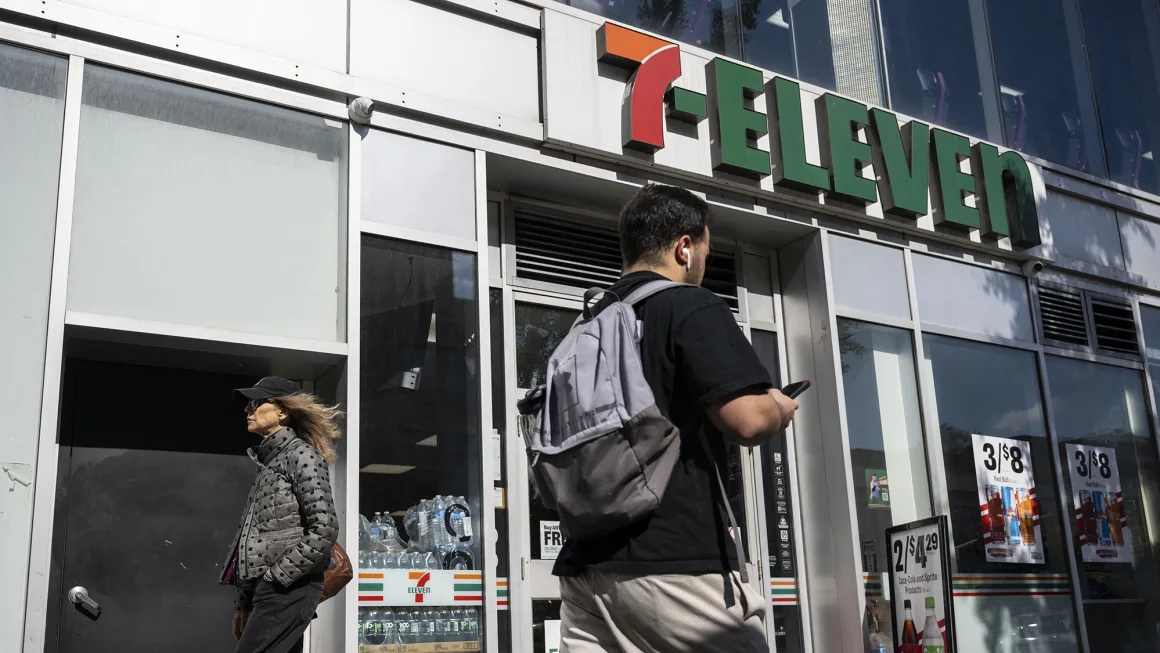Several hundred “underperforming” 7-Eleven locations across North America are closing, the convenience store announced.
Seven & I Holdings, the chain’s Japan-based parent company, revealed in an earnings report Thursday that 444 locations of 7-Eleven are shutting down because of a variety of issues, including slowing sales, declining traffic, inflationary pressures and a decrease in cigarette purchases.
A specific list of closing locations wasn’t immediately released. The chain has more than 13,000 stores across the United States, Canada and Mexico, so the number of closures amounts to 3% of its portfolio.
In its earnings release, Seven & I said that while the North American economy is “robust overall,” it noticed a “more prudent approach to consumption” from middle- and low-income earners because of persistent inflation, high interest rates and a “deteriorating” employment environment.
A combination of those factors led to a 7.3% decline in traffic in August, capping off six straight months of declines.
The chain also pointed out that cigarettes purchases, which was once the largest sales category for convenience stores, has fallen 26% since 2019. A marked shift in sales to other nicotine products, like Zyn, hasn’t made up the difference.
7-Eleven told CNN in a statement that it “continuously reviews and optimizes its portfolio” and the closed stores are part of its growth strategy, adding that the chain continues to “open stores in areas where customers are looking for more convenience”
The 444 closures is a “gentle pruning of the chain to keep it efficient and profitable,” according to Neil Saunders, a retail industry analyst and managing director with GlobalData Retail.
“The locations being closed have likely suffered from a disproportionate decline in foot traffic and customers as consumers battle with rising food prices and cut back on the amount they buy,” Saunders told CNN. “In some areas, increased competition from online and value stores will also have taken their toll as consumers seek out lower prices.”
Meanwhile, 7-Eleven said it will continue to invest in food in the United States since it’s now the highest sales category and a top draw for customers. Competitors like Wawa and Sheetz are earning higher customer satisfaction scores for their overall offerings, while 7-Eleven ranked way lower, according to a recent survey.
The company’s latest financial results come amid a takeover offer from Circle-K owner Couche-Tard, which increased its bid by $8 billion to $47.2 billion this week.

